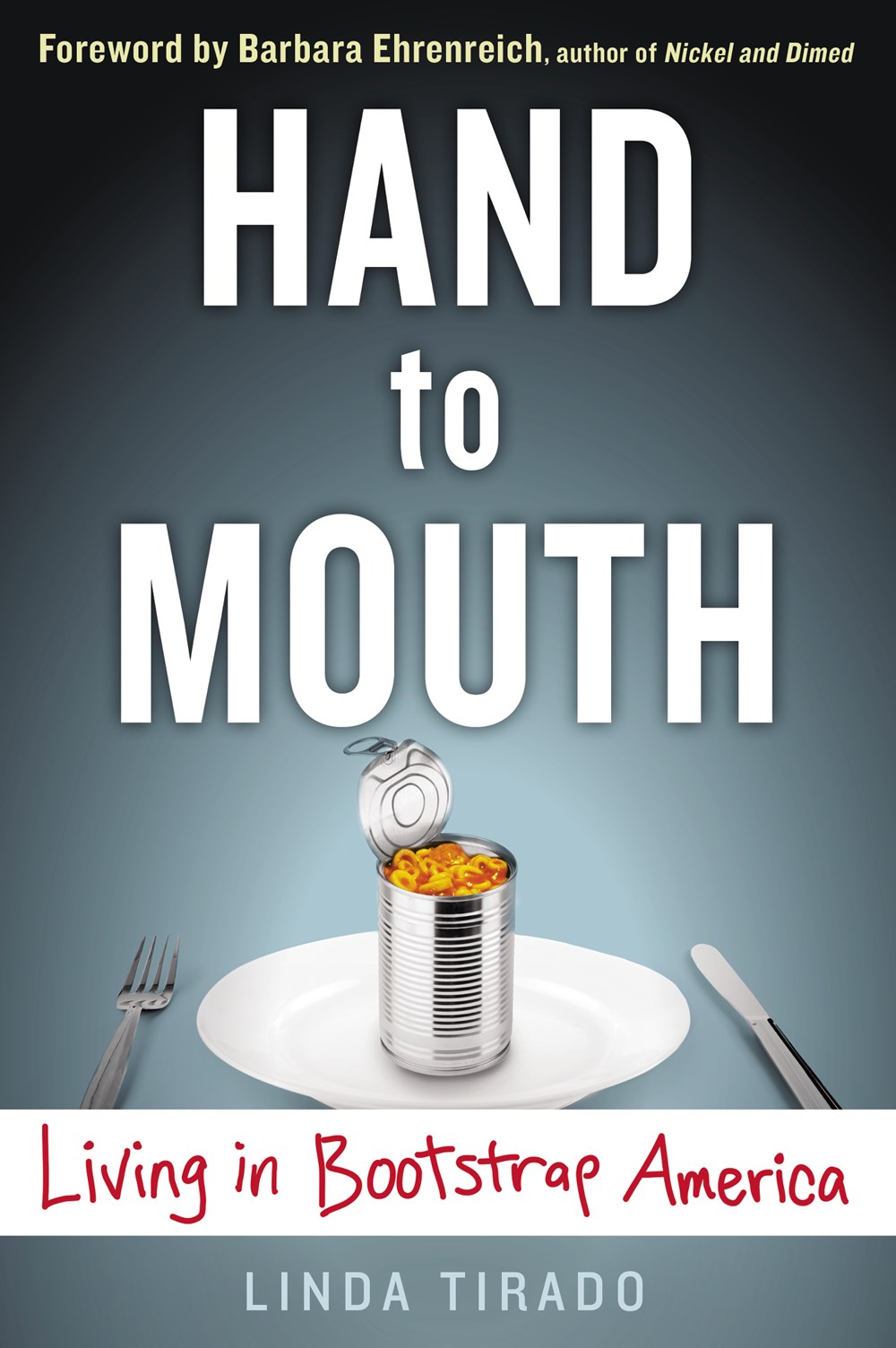Hand to Mouth: Living in Bootstrap America
September 09, 2015
Linda Tirado's first-hand experience as a serial minimum-wager stands in contrast to the elusive American Dream.
 There are frequent enough reminders that the American Dream is, here in 2015, at best a quaint idea contingent upon a perhaps even quainter ideal that once underwrote both governments and private enterprises. When you look at the statistics, wealth and comfort do not appear to be readily available to most anymore. The elusiveness of upward mobility (especially in the United States) can be a bit discouraging. How does a person move up? It's not entirely uncommon to hear the homage to "hard work." There are in fact business books still being published (some are not yet published, but they will be) extolling hard work as a big piece of the pie that will represent a person's success.
There are frequent enough reminders that the American Dream is, here in 2015, at best a quaint idea contingent upon a perhaps even quainter ideal that once underwrote both governments and private enterprises. When you look at the statistics, wealth and comfort do not appear to be readily available to most anymore. The elusiveness of upward mobility (especially in the United States) can be a bit discouraging. How does a person move up? It's not entirely uncommon to hear the homage to "hard work." There are in fact business books still being published (some are not yet published, but they will be) extolling hard work as a big piece of the pie that will represent a person's success.But the impact of hard work can depend on other factors. Results may vary, as the liability-conscious say. Does working hard as a fast food jockey yield the same benefits as working hard as a white-collar professional with a degree? Surely not, and this is the takeaway from Linda Tirado's Hand to Mouth: Living in Bootstrap America. Tirado's first-hand experience as a serial minimum-wager provides ample fuel for her series of revelations on what it's like to be a hard-working American struggling against an inevitable poverty.
Our ladder's rungs are set closer together, and there are so many of them that it takes us forever to climb it.
Hand to Mouth is almost entirely free of statistics. My initial response to the absence of these statistics was, "How about some numbers to back this up? I know the numbers are out there!" But Tirado isn't a researcher or even a journalist. As her bio on the flap says, she's a completely average American. That's what gives Hand to Mouth its impact. Tirado is a real person who has actually worked—as an adult—for minimum wage. And this book is not making an argument that can't be made without statistics.
Tirado uses Hand to Mouth as a means of pulling back the curtain on low-wage America. The book does not contain answers to the riddles of the income and wealth inequality. Hand to Mouth is simply a humane response to the demonization the poor often suffer due to an oversimplification of how success works in life and in business. Tirado illustrates with her dozens of stories about the reality of hourly low-wage work that what puts a person in poverty is by no means that person's own doing, but rather simple misfortune or a convergence of rigid, unforgiving systems with which can't be reckoned.
[A lot of people] think that we get fired from jobs because we don't know how to behave, or we're always late, or we just don't care. But what rich people don't realize is how unbelievably easy it is to get fired. And a lot of times what gets you fired is that you're working more than one job.
Hand to Mouth goes beyond simple storytelling with Tirado's explanation of what happens when workers must deal with strict and uncompassionate management in the workplace. Her experience is that of an hourly worker making minimum wage, but the principles go beyond minimum wage and up into any work sector imaginable. The big lesson is something bankable for all companies, whether they be fast food joints or ad agencies. Companies and managers that don't care about their people will only ever get a job done, and never anything more.
The result of all this? I just give up caring about work. I lose energy, the bounce, the willingness. I'll perform as directed, but no more than that. I've rarely had a boss who gave me any indication that he valued me more highly than my uniform—we were that interchangeable—so I don't go out of my way for my bosses either.
After writing a piece that proved to be the prelude to this book, and the popularization Tirado received the inevitable downpour of criticism from those wont to cry foul over an impoverished woman telling her story articulately. And over the last year-plus, she's weathered the maligning and her message has maintained its power. Life for low-wage workers is hard, and in some cases the opportunities to climb out of poverty simply aren't there.
Tirado ends Hand to Mouth with the chapter "An Open Letter to Rich People." As she explains earlier in the book, Tirado defines "rich" as anything beyond an ability to own one's own furniture and live in a modestly nice home. In that final chapter, she bitingly bottom-lines the entire purpose of the book. Rich people and poor people simply don't understand one another. Linda Tirado does a terrific job of providing a voice for the poor and urging society at large to engage with that collective voice with hope that the disparate classes can better understand each other.
There are poor and working-class people everywhere, guys. You can just have a conversation with one, like a real human being. Give it a try. You'll like it.

